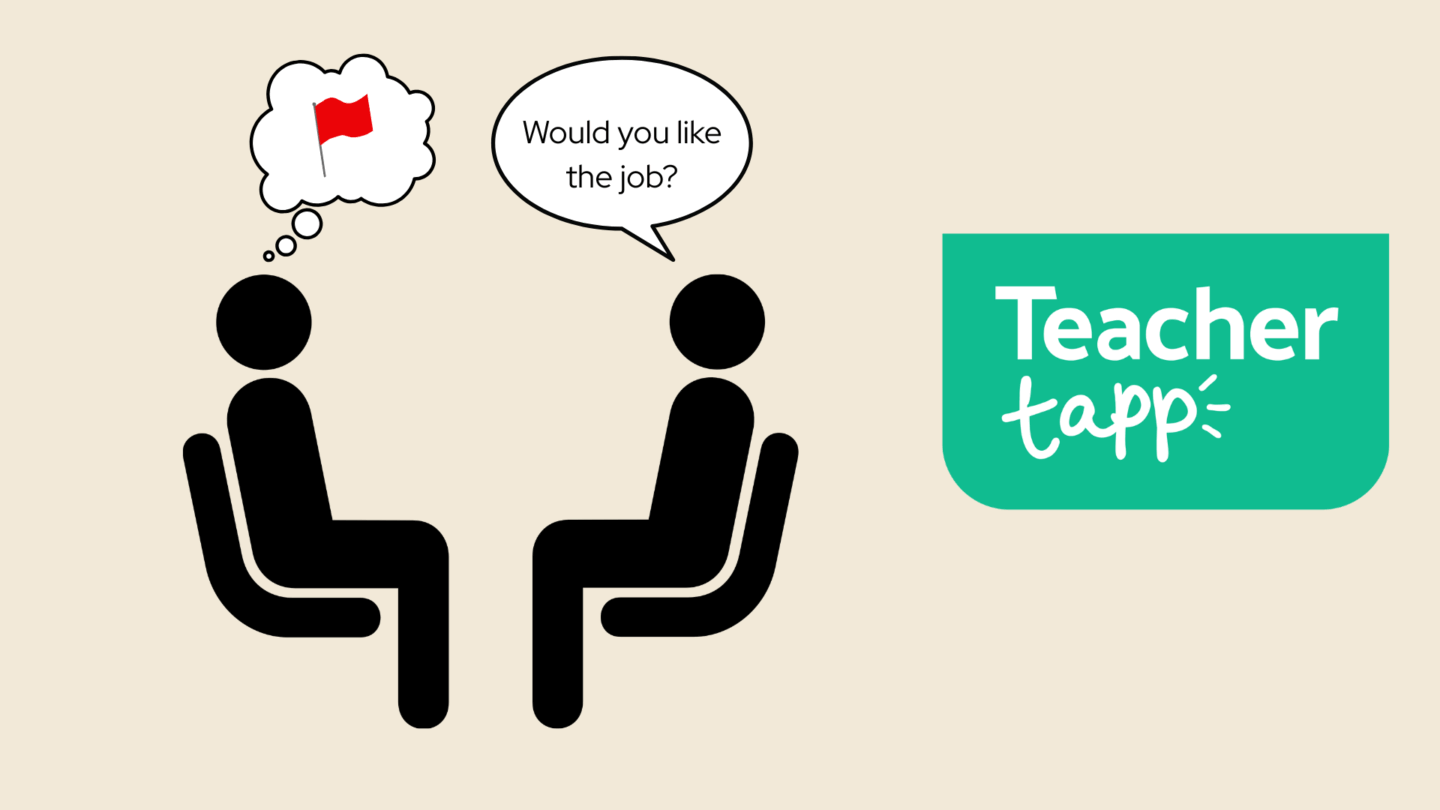Howdy Tappsters!
We have reached the point of ‘oh gosh what day is it?’ in the holidays. Have you started to relax yet?
Teacher pay rise announcement
The teacher pay rise has been confirmed at 5.5% 🙌💰.
The Department for Education accepted the recommendations made by the School Teachers Review Body (STRB), but was this enough to make teachers happy?
For the majority of school staff, the answer is yes. Teachers who are more senior (and are consequently on a higher salary) were more in favour of the increase.
56% of classroom teachers think it’s the right amount, compared to 61% of middle leaders and 67% of senior leaders including headteachers.
More senior leaders thought the increase was too much compared to classroom or middle leaders (3% vs 1%). This could be because senior leaders have the headache of balancing school budgets, and ensuring the money is there to pay the higher wages.

Will the higher pay help teacher recruitment? 🤔 If you haven’t read it yet, check out our Teacher Tapp report into teacher recruitment in 2023/24.
SEND and mainstream
SEND reform has been in the news again this month, with the BBC covering the stories of families whose children they feel aren’t getting the right support from school.
When Bridget Phillipson wrote to the education sector, she also made reference to the work that needs to be done with SEND, saying: “[This government will] provide support for children with SEND and their families.” .
In March this year, there were reports that special schools were over-subscribed and needed more capacity.
Teachers working in Ofsted graded RI or inadequate schools are more likely to say they have taught a child this year whose needs were too complex for a mainstream school (88% vs 82% and 70%).

Primary and secondary teachers gave broadly similar responses (77% and 79%) and across regions results remained very similar.
Do you have a suggestion for a question about SEND? Send it in to us either through the app, or by emailing england@teachertapp.co.uk.
Academies and autonomy
The stereotype of academies offering less autonomy is an old one – but is there any truth in it? 🤨
Teachers who have worked in an academy are more likely to say academies offer neither more nor less autonomy or more autonomy compared to teachers who have not worked in an academy (33% vs 8%).

So how do these perceptions impact job choices?
When asked to choose between working in an academy or a Local Authority school (all other factors being equal) those who have worked in an academy were more likely to pick an academy (15% vs 5%) and more likely to ‘flip a coin’ (30% vs 12%).
However – the most frequent option for both groups was the Local Authority school (56% for those who have worked in an academy, and 83% for those who have not worked in an academy).
Let us know your thoughts through the app, on socials or by emailing in 💬.
Teachers who have received online abuse in 2023-24
Schools reporting struggles with parent relationships have been on the rise in the last academic year – and those struggles include schools reporting online abuse from parents.
Classroom teachers in primary are more likely to receive online abuse compared to secondary (9% vs 5%).
However, it is senior leaders who are most likely to be targeted: 22% of senior leaders in primary and 20% of senior leaders in secondary have had online abuse last year.

However, this experience changes depending on the type of school you work in. Senior leaders in the most affluent areas are less likely to experience online abuse compared to the most disadvantaged areas (17% vs 23%).
This also tracks for classroom teachers: in the most affluent areas, classroom teachers are less likely to experience online abuse compared to those working in the most disadvantaged areas (6% vs 9%).
How long should you teach before you lead?
When it comes to school leadership there is no requirement for any teacher to have a fixed amount of classroom experience before holding a management post.
But how many years minimum do teachers feel a leader should have?
✅ The most popular response from primary teachers was 5 years (28%) and secondary teachers 3 years (28%).
0️⃣ However, 10% believe a department or key stage can be led by a year one ECT (ie no classroom experience beyond their training placements).
📊 Teachers in their 20s were more likely than teachers in their 50s to say a year one ECT could lead (14% vs 8%).
Have you got experience of leading a department as a newly qualified teacher or by a newly qualified teacher? Does it matter if someone has experience outside the classroom?
Share your stories with us on socials or via the app 📲.
Is it right to write lines?
“I must not forget to write the Teacher Tapp blog…I must not forget to write the Teacher Tapp blog…”
Once upon a time, a slipper was used by teachers to punish children (ever wondered what Victorian Teacher Tapp questions would have been? Send in your suggestions…) and some might have assumed writing lines as punishment has also been consigned to the edu-bin of time.
📝 4% of secondary teachers use lines as punishment, 1% regularly and 3% rarely.
🚫 0% of primary teachers use lines as punishment regularly, and 2% rarely.
This is a drop compared to 2018, when 11% of secondary teachers used them either regularly or rarely, and 7% of primary teachers used them either regularly or rarely.
If we ask again in 6 years, will it be obsolete? 🤔
Top events
This week’s top event is from Thinking Deeply about Primary Education: Getting routines right.
This is an on-demand event, but we also have in-person events to sign up for too.
If you want to know what edu-events are coming up then check the app and filter for your phase and subject.
Ups and Downs
On the rise 📈
Teachers who want pupils to have a broad education beyond age 14 – Compared to last August, the number of teachers who strongly agree students should continue to study a wide range of subjects has increased to 25% from 16%.
Heading down 📉
Microsoft Word – Once the programme of choice for teachers creating worksheets, today only 56% of teachers would grapple with the ‘helpful’ paperclip to create a new resource, compared to 70% in 2020.
Daily Reads
Our most read daily read this week was from Bristol university on 50% of children born in Wales in 2002 diagnosed with SEND.
If you would like to read the rest you can find them here 👇





